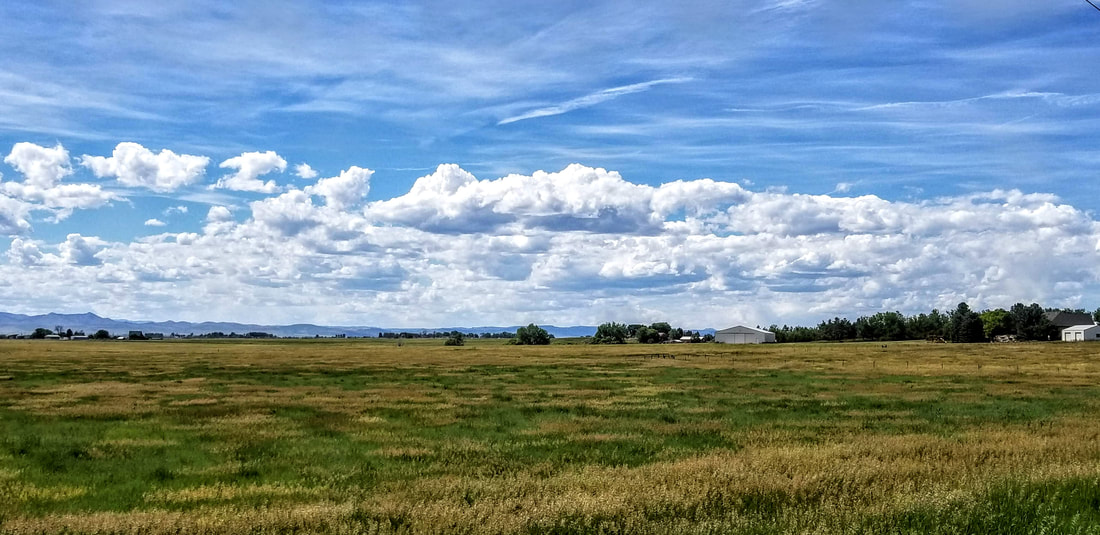|
A Message delivered to St. David of Wales Episcopal Church on Luke 6:17-26 Luke’s gospel leaves no doubt that Jesus has come to turn the powers of the world upside down. When our readings for this liturgical year turned to Luke’s gospel in Advent, we heard the promises of God’s plan through the song of Mary. Upon learning that she would give birth to the Messiah, Mary—an unwed teen in occupied territory—proclaimed that she had found favor with God, that God had lifted up the humble, and fed the hungry, while casting down the powerful and sending the rich away hungry. A few weeks ago, when we read of Jesus beginning his public ministry, we found him in his hometown synagogue reading from the scroll of Isaiah and proclaiming that he was the one sent to free the oppressed. And in this morning’s gospel lesson, Jesus offers blessings to “comfort the afflicted” and woes “to afflict the comfortable” as the saying goes. Most of us are used to hearing the blessings, or Beatitudes from Matthew’s gospel, where there are only blessings for the poor and downtrodden, those who mourn and those who weep. In Matthew’s account, there are no woes for those who appear comfortable, as there are in Luke’s.
In Matthew’s gospel, Jesus delivers the beatitudes to the disciples in the Sermon on the Mount—he has gone up the mountainside and called his disciples to him. But in Luke’s account, the blessings and woes aren’t spoken in the rarified mountain air by a teacher calmly seated with his disciples circled around him. In Luke’s gospel Jesus had spent the night on a mountain with his disciples, of whom he singled out 12 to become apostles. Twelve who would not just listen and learn from Jesus but would spread his message as well. In the morning Jesus, the disciples, and his newly chosen apostles head down the mountain to a level place, and people from all over the region come to be healed. Jesus is alive with healing power, and it radiates through the crowd. Word spreads. More and more people come. Imagine a time without newspapers, TV, or social media news, a time when aside from secondhand conversation, the only way to know what someone said, did, or believed was to find out in person. Imagining that, we can surmise that there were plenty of people in the crowd who came not because they needed healing, or believed in what they’d heard about Jesus, but who came out of curiosity, disbelief, and even scorn. Those who gathered from towns and villages would have been from a variety of social classes, power, and privilege. And here on the plain, in this level place, no listener is elevated above another. It’s not like going to the Super Bowl with the rich in their private boxes, or club level seats, and the less well-to-do in the nosebleed sections watching the action through binoculars, and the poor, unable to afford tickets listening to radio broadcasts or watching the game at home on TV. In Jesus’ Sermon on the Plain, the playing field is level, so to speak. The religious authorities and town officials aren’t invited up front. The women and children aren’t herded to the back. Everyone’s view is obscured by everyone else. Everyone is struggling to hear over the noise of each other. No one is getting special treatment, and the equality of everyone before God is made visible just by that fact. And then we have Jesus’ blessings and woes themselves. Here is Eugene Peterson’s interpretation in “The Message” Bible: You’re blessed when you’ve lost it all. God’s kingdom is there for the finding. You’re blessed when you’re ravenously hungry. Then you’re ready for the Messianic meal. You’re blessed when the tears flow freely. Joy comes with the morning. “Count yourself blessed every time someone cuts you down or throws you out, every time someone smears or blackens your name to discredit me. What it means is that the truth is too close for comfort and that that person is uncomfortable. You can be glad when that happens—skip like a lamb, if you like! —for even though they don’t like it, I do. . . and all heaven applauds. And know that you are in good company; my preachers and witnesses have always been treated like this. But it’s trouble ahead if you think you have it made. What you have is all you’ll ever get. And it’s trouble ahead if you’re satisfied with yourself. Your self will not satisfy you for long. And it’s trouble ahead if you think life’s all fun and games. There’s suffering to be met, and you’re going to meet it. “There’s trouble ahead when you live only for the approval of others, saying what flatters them, doing what indulges them. Popularity contests are not truth contests—look how many scoundrel preachers were approved by your ancestors! Your task is to be true, not popular. In her “Living by the Word” commentary for the Christian Century Amy Ziettlow, pastor of Holy Cross Lutheran Church in Decatur, Illinois, writes this about the gospel passage: On first read, I often fall into the trap of reading these blessings and woes as I would a personality quiz. I want to find a comfortable place to land and find my identity. But every verse can seem to fit, so I see myself in conflicting categories. On subsequent readings, it seems Jesus cares less about sorting us out than welcoming us to live in the tension of all these experiences. She continues: Jesus aims to remove any barriers to seeing God’s image reflected in our lives. Poverty, hunger, tears, and being hated can distort our reflection and convince us that we are less than human. Jesus brings blessing, comfort, and hope in order to restore a sense of holy createdness. Wealth, full bellies, mirth, and the esteem of others can also distort our sense of self. Jesus calls out, “Whoa!” and in that holy pause we can repent and make room for God’s presence in our lives. Jesus does not come into the world to condemn. Jesus doesn’t come into the world to condemn. And he doesn’t come into the world to save us from the pain of being human. He comes to the world as an infant, utterly dependent and vulnerable. The former Archbishop of Canterbury Rowan Williams wrote, “God acts by giving away all strength and success as we understand them. The universe lives by a love that refuses to bully us or force us, the love of the manger and the cross.” In her sermon at the Washington National Cathedral on God's vulnerability, Mariann Edgar Budde says, “We’d like our God to be more powerful than a baby or a man sentenced to die… The truth is we don’t know what to do with a God who gives all power away; with healing that comes through suffering; with love that meets us in our vulnerabilities and stays there with us, rather than providing the escape from it that we so desperately want.” The saving that Jesus offers us, doesn’t save us from experience the blessing or woe of being human. Throughout our lifetimes we will experience plenty of each. We might experience blessing of marriage and the woe of divorce and widowhood. Or the blessing and worry of raising children. Or the blessing of employment and vocation and the woe of unemployment, layoffs and closures. Or the blessing of home and the woe of fire, flood, or homelessness. Or the blessing of good physical and mental health, the woe of disease, addiction, and mental illness. We are certainly all experiencing the woe of pandemic and the blessing of new ways to interact because of it. We will prosper, and we will suffer no matter what we believe. But it is so much harder to embrace blessing without hubris and to weather woes without fear and despair our faith begins and ends with our own efforts. When we make room for God in our ever-changing circumstances, we are able to grasp the one constant Jesus offers us: the gift and surety of his presence. When we call Jesus Emmanuel, we are saying, “God with us.” God is with us in all things. Always.
0 Comments
Your comment will be posted after it is approved.
Leave a Reply. |
I began blogging about "This or Something Better" in 2011 when my husband and I were discerning what came next in our lives, which turned out to be relocating to Puget Sound from our Native California. My older posts can be found here.
Categories
All
Archives
September 2023
Newsletters |

